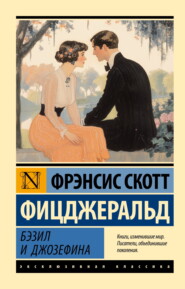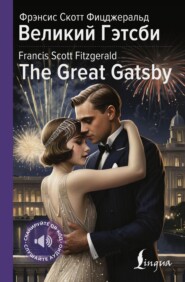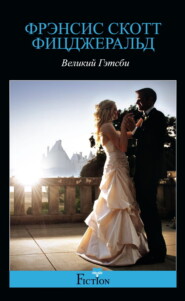По всем вопросам обращайтесь на: info@litportal.ru
(©) 2003-2024.
✖
The Beautiful and Damned / Прекрасные и обреченные
Настройки чтения
Размер шрифта
Высота строк
Поля
Tuesday was freezing cold. He called at a bleak two o'clock and as they shook hands he wondered confusedly whether he had ever kissed her; it was almost unbelievable-he seriously doubted if she remembered it.
“I called you four times on Sunday,” he told her.
“Did you?”
There was surprise in her voice and interest in her expression. Silently he cursed himself for having told her. He might have known her pride did not deal in such petty triumphs. Even then he had not guessed at the truth-that never having had to worry about men she had seldom used the wary subterfuges, the playings out and haulings in, that were the stock in trade of her sisterhood. When she liked a man, that was trick enough. Did she think she loved him-there was an ultimate and fatal thrust. Her charm endlessly preserved itself.
“I was anxious to see you,” he said simply. “I want to talk to you-I mean really talk, somewhere where we can be alone. May I?”
“What do you mean?”
He swallowed a sudden lump of panic. He felt that she knew what he wanted.
“I mean, not at a tea table,” he said.
“Well, all right, but not to-day. I want to get some exercise. Let's walk!”
It was bitter and raw. All the evil hate in the mad heart of February was wrought into the forlorn and icy wind that cut its way cruelly across Central Park and down along Fifth Avenue. It was almost impossible to talk, and discomfort made him distracted, so much so that he turned at Sixty-first Street to find that she was no longer beside him. He looked around. She was forty feet in the rear standing motionless, her face half hidden in her fur coat collar, moved either by anger or laughter-he could not determine which. He started back.
“Don't let me interrupt your walk!” she called.
“I'm mighty sorry,” he answered in confusion. “Did I go too fast?”
“I'm cold,” she announced. “I want to go home. And you walk too fast.”
“I'm very sorry.”
Side by side they started for the Plaza. He wished he could see her face.
“Men don't usually get so absorbed in themselves when they're with me.”
“I'm sorry.”
“That's very interesting.”
“It is rather too cold to walk,” he said, briskly, to hide his annoyance.
She made no answer and he wondered if she would dismiss him at the hotel entrance. She walked in without speaking, however, and to the elevator, throwing him a single remark as she entered it:
“You'd better come up.”
He hesitated for the fraction of a moment.
“Perhaps I'd better call some other time.”
“Just as you say.” Her words were murmured as an aside. The main concern of life was the adjusting of some stray wisps of hair in the elevator mirror. Her cheeks were brilliant, her eyes sparkled-she had never seemed so lovely, so exquisitely to be desired.
Despising himself, he found that he was walking down the tenth-floor corridor a subservient foot behind her; was in the sitting room while she disappeared to shed her furs. Something had gone wrong-in his own eyes he had lost a shred of dignity; in an unpremeditated yet significant encounter he had been completely defeated.
However, by the time she reappeared in the sitting-room he had explained himself to himself with sophistic satisfaction. After all he had done the strongest thing, he thought. He had wanted to come up, he had come. Yet what happened later on that afternoon must be traced to the indignity he had experienced in the elevator; the girl was worrying him intolerably, so much so that when she came out he involuntarily drifted into criticism.
“Who's this Bloeckman, Gloria?”
“A business friend of father's.”
“Odd sort of fellow!”
“He doesn't like you either,” she said with a sudden smile.
Anthony laughed.
“I'm flattered at his notice. He evidently considers me a-” He broke off with “Is he in love with you?”
“I don't know.”
“The deuce you don't,” he insisted. “Of course he is. I remember the look he gave me when we got back to the table. He'd probably have had me quietly assaulted by a delegation of movie supes if you hadn't invented that phone call.”
“I called you four times on Sunday,” he told her.
“Did you?”
There was surprise in her voice and interest in her expression. Silently he cursed himself for having told her. He might have known her pride did not deal in such petty triumphs. Even then he had not guessed at the truth-that never having had to worry about men she had seldom used the wary subterfuges, the playings out and haulings in, that were the stock in trade of her sisterhood. When she liked a man, that was trick enough. Did she think she loved him-there was an ultimate and fatal thrust. Her charm endlessly preserved itself.
“I was anxious to see you,” he said simply. “I want to talk to you-I mean really talk, somewhere where we can be alone. May I?”
“What do you mean?”
He swallowed a sudden lump of panic. He felt that she knew what he wanted.
“I mean, not at a tea table,” he said.
“Well, all right, but not to-day. I want to get some exercise. Let's walk!”
It was bitter and raw. All the evil hate in the mad heart of February was wrought into the forlorn and icy wind that cut its way cruelly across Central Park and down along Fifth Avenue. It was almost impossible to talk, and discomfort made him distracted, so much so that he turned at Sixty-first Street to find that she was no longer beside him. He looked around. She was forty feet in the rear standing motionless, her face half hidden in her fur coat collar, moved either by anger or laughter-he could not determine which. He started back.
“Don't let me interrupt your walk!” she called.
“I'm mighty sorry,” he answered in confusion. “Did I go too fast?”
“I'm cold,” she announced. “I want to go home. And you walk too fast.”
“I'm very sorry.”
Side by side they started for the Plaza. He wished he could see her face.
“Men don't usually get so absorbed in themselves when they're with me.”
“I'm sorry.”
“That's very interesting.”
“It is rather too cold to walk,” he said, briskly, to hide his annoyance.
She made no answer and he wondered if she would dismiss him at the hotel entrance. She walked in without speaking, however, and to the elevator, throwing him a single remark as she entered it:
“You'd better come up.”
He hesitated for the fraction of a moment.
“Perhaps I'd better call some other time.”
“Just as you say.” Her words were murmured as an aside. The main concern of life was the adjusting of some stray wisps of hair in the elevator mirror. Her cheeks were brilliant, her eyes sparkled-she had never seemed so lovely, so exquisitely to be desired.
Despising himself, he found that he was walking down the tenth-floor corridor a subservient foot behind her; was in the sitting room while she disappeared to shed her furs. Something had gone wrong-in his own eyes he had lost a shred of dignity; in an unpremeditated yet significant encounter he had been completely defeated.
However, by the time she reappeared in the sitting-room he had explained himself to himself with sophistic satisfaction. After all he had done the strongest thing, he thought. He had wanted to come up, he had come. Yet what happened later on that afternoon must be traced to the indignity he had experienced in the elevator; the girl was worrying him intolerably, so much so that when she came out he involuntarily drifted into criticism.
“Who's this Bloeckman, Gloria?”
“A business friend of father's.”
“Odd sort of fellow!”
“He doesn't like you either,” she said with a sudden smile.
Anthony laughed.
“I'm flattered at his notice. He evidently considers me a-” He broke off with “Is he in love with you?”
“I don't know.”
“The deuce you don't,” he insisted. “Of course he is. I remember the look he gave me when we got back to the table. He'd probably have had me quietly assaulted by a delegation of movie supes if you hadn't invented that phone call.”
Вы ознакомились с фрагментом книги.
Приобретайте полный текст книги у нашего партнера:
Приобретайте полный текст книги у нашего партнера:

















